5 Female Entrepreneurs Under Age 35 Share Their Success-Story Secrets
But here, five thriving female entrepreneurs—all of whom are under 35 years old and have innovated the food world in some way—spill their secrets on how they bridged the gap from idea to action. Keep reading to see how these light-bulb moments transformed into success stories.
Learn the secrets to success from 5 hustling millennial entrepreneurs.
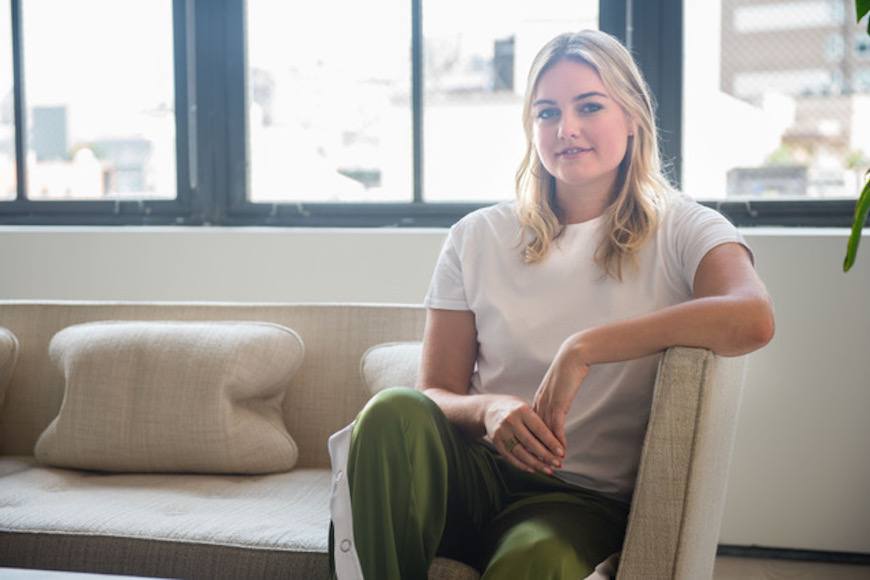
Jessica Young, 29, CEO and founder of Bubble
Earlier this year, Jessica Young left her post as the first-ever employee at frozen superfood delivery service Daily Harvest to launch Bubble, a direct-to-consumer online marketplace for wellness brands that makes healthy food more accessible. It's a gold mine of organic, healthy food finds (à la Erewhon) with the cool-girl cache and online shopping convenience of Farfetch. Unlike other big retail food sites (like Amazon and Jet), everything on Bubble is carefully curated by Young, who ensures the ingredients' list is clean and the food truly is good for you—and made by a company you can feel good supporting with your business.

{{post.sponsorText}}
When did you know you were ready to leave your job at Daily Harvest and start your own company?
This one was tough for me. I wasn’t 100 percent sure I was ready. Ultimately, I made the decision after closing the $43M Series B at Daily Harvest. I realized that I had accomplished in my career at Daily Harvest what I had set out to do.
How did you know where to start and do everything it takes to run a business?
Before launching Bubble, I was on the opening crew at Hu Kitchen, operated my own vegan pop-up in NYC (lasting two days, three different times), was one of the first five at meal kit company Ritual (it went out of business in the first year, which was a great learning experience), and was the first employee at Daily Harvest. I knew where to start because I had done it before.
What's been your strongest learning experience?
I believe you need to have some serious head down, “yes, chef” time, and a chance to experience failure before stepping out on your own. During the pop-up, our food was amazing, but I cried multiple times in the basement. We had no staff show and a line down the street of hungry people who had purchased tickets. I'm actually glad I experienced failure through Ritual and my pop-up because I learned so much from it.
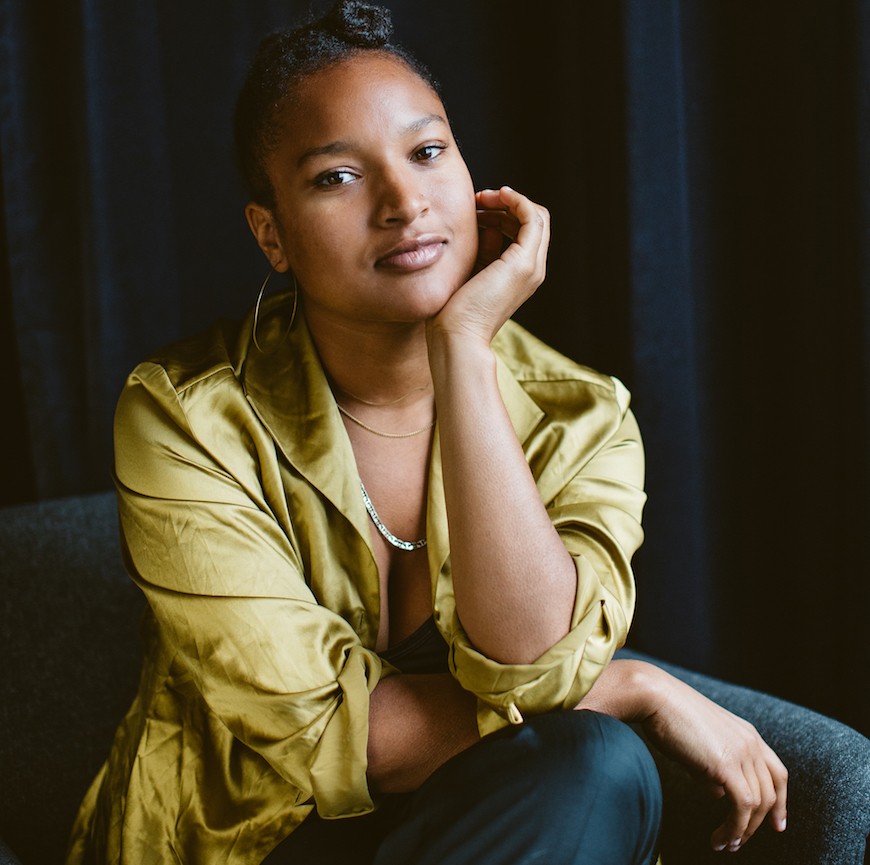
Salimatu Amabebe, 27, vegan and gluten-free chef, Bliss House founder
Through her company Bliss House, Salimatu Amabebe offers cooking classes; food-activism talks; and pop-up Nigerian dinners, dubbed Black Feasts, which combine food and art with a healthy, vegan menu inspired by an African American artist. (Past themes have included Nina Simone's album 'Nuff Said! and Audre Lorde's book Sister Outsider.) Beyond being a way to enjoy nourishing food and celebrate black culture, it's a space to have conversations about race and might otherwise never be started.
Why did you decide to launch Bliss House and start hosting Black Feasts?
I was 22, had been traveling for a few years and had no way of supporting myself, so I started selling vegan cakes to local cafés. I taught cooking classes on the side to make enough to pay my rent. A couple years later, I came across an artist residency in Berlin that focused on food, art, and ecology. I spent a month working with some of the most incredible chefs-slash-artists I have ever met and realized that through pop-up dinners, I could make art that was accessible, told a story, and provided a service. For me, this was essential. I started Black Feast because I knew that I had a responsibility as a chef and artist to create more spaces to honor and celebrate black voices.
What problem did you intend for Bliss House to solve?
When I started working in restaurants, I noticed some deeply troubling restaurant politics: I felt like the only way to work in a kitchen was to be constantly overworked, stressed out, and to essentially sign off on having your basic needs and rights ignored. As someone who is often perceived as feminine, I felt like I needed to work 10 times as hard for people to believe that I knew what I was doing. I was getting burnt out trying to work harder than everyone just to prove myself as equal.
Now, I get to decide how my kitchen is run. I believe in taking care of everyone on my team. Everyone deserves to be paid well for their time and work, to be treated fairly and respectfully and yes, take breaks, and yes, eat dinner!
How did you know how to get started?
It involved a painful amount of trial and error. I hosted the first dinner at my house and 40 people showed up—there wasn't enough room for everyone to sit! (I eventually learned to use an online ticketing system instead of just sending a Facebook invite so I had a better idea of RSVPs.) I had a lot of kitchen experience but very little business experience, so I relied on people hearing about Bliss House through word of mouth and put my effort into consistently making the most delicious food I knew how.
I paid for everything out-of-pocket at first—fortunately, now the ticket sales cover the expenses—and made connections with people all over the world who wanted to hire me for this event or that workshop, until I finally landed in Portland and was able to host pop-up events on a regular basis.
What's your biggest piece of advice for entrepreneurs?
Don't just hole away in your room and think that you will emerge with a brilliant business plan. Bring it out into the light of day. Show it to people whose opinions you trust. Get feedback! Also, don't be afraid to collaborate. Other people have talents, too—don't be afraid to let them help.
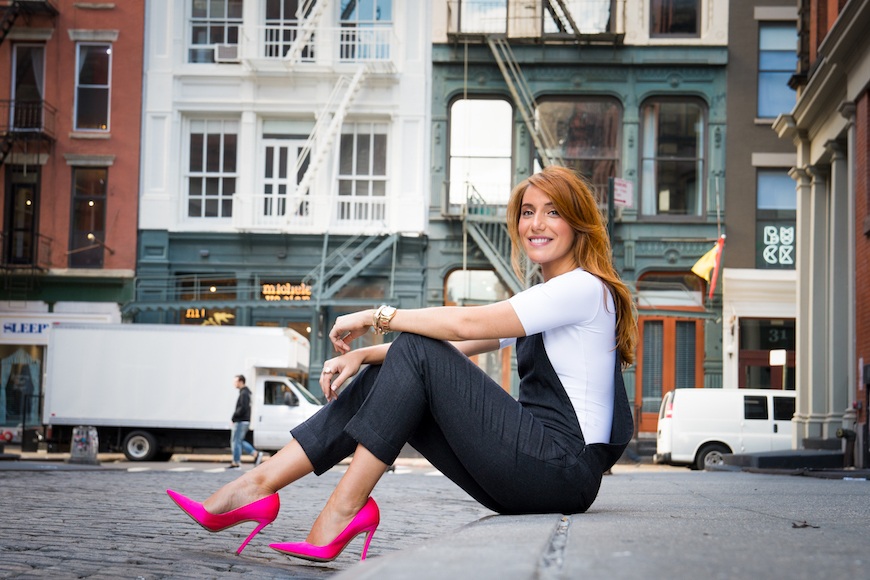
Camilla Marcus, 33, owner of West~Bourne
Opening a brick-and-mortar of any kind in New York City is a massive feat, and Camilla Marcus's restaurant, West~Bourne has quickly become a bona fide foodie destination. While the main draw is the delish vegetarian plates, Marcus deserves serious credit for upending the traditional restaurant model. There are no "front of house" or "back of house" employees—and no porters or bussers either. Instead, everyone learns everything and gets paid equally. Each employee is also given a stipend to put toward developing a side hustle—whatever they want it to be. Oh, and 1 percent of every purchase is donated to youth development nonprofit The Door, which offers everything from tutoring and college advisement to mental-health counseling, recreational activities, cooking lessons, health services, and legal and immigration services.
How did you know where to start when it came to running a business?
While I’ve always had an entrepreneurial spirit, it took me a decade to realize the things I was passionate about didn't really exist yet, so I had to forge my own path. If I’m unfamiliar with something, I’m the first to raise my hand and say, "I don’t know" to anyone who will listen. And because of that, I've found tremendous support and insight come from simply asking for help through my network. And I always go with my gut: Having faith in my instincts has always led me down a productive path as long as I’m honestly true to it.
What has been most rewarding so far?
The cycle our giveback model has created. Our team feels ownership that West~Bourne is theirs, which then empowers them to treat our guests like family. That, in turn, makes the guests feel connected to us and contribute to our revenue share with The Door through purchases and donations. And through those contributions, we're able to continue supporting The Door and hire out of that program. Then, new team members are drawn to join us, reigniting the cycle.
What advice do you have for food entrepreneurs just starting out?
It takes a village, so put time and thought into choosing and developing your business. Intentionally slow down, take it day by day, and don't constantly plan the next steps. Also, I believe fiercely in karma and coming from a generous place, so what you give is absolutely what you will get.
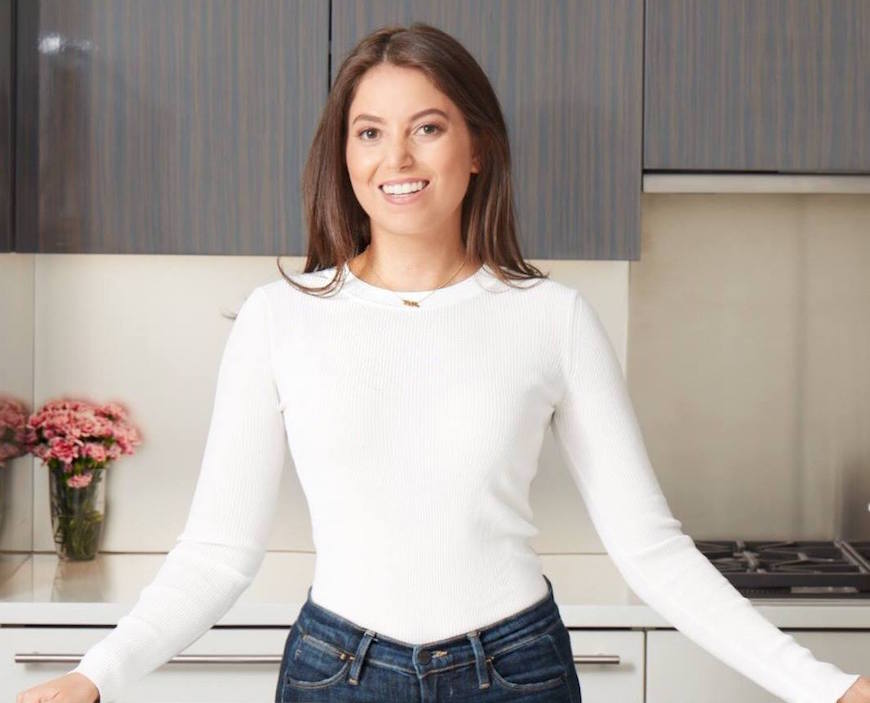
Ali Kaminetsky, 24, founder of Modern Picnic
It was only a couple weeks after graduating from Lehigh University in 2016 that Ali Kaminetsky came up with the idea for Modern Picnic, AKA the chicest lunch box ever. With an insulated interior and vegan leather exterior, it's more sustainable and for sure more fashionable than using an old plastic grocery bag.
How did you get the idea for Modern Picnic?
I moved to New York City to start my first job, and I'd bring my lunch to work every day because it was faster, cheaper, and healthier than buying it. But carrying my lunch in old plastic shopping bags from the supermarket wasn't cute. The traditional lunch box didn’t fit my needs either; it needed a major makeover. That’s what sparked my idea for Modern Picnic—literally one week into my job—and from there, the brand was born.
How did you know where to start and do everything it takes to run a business?
I didn’t, and I am still learning every day. I left a traditional job behind after a few months knowing that in order to make my business a success, I needed to put my heart and soul into it full-time. I started by asking for advice from anyone and everyone I could tap into and did my research. Google has been my best friend. My business is self-funded, with some additional familial support, however I seek to raise outside capital in the future.
What's your biggest piece of advice for hesitant business owners?
Go for it! If you have an idea and you have the passion, nothing should hold you back from trying.
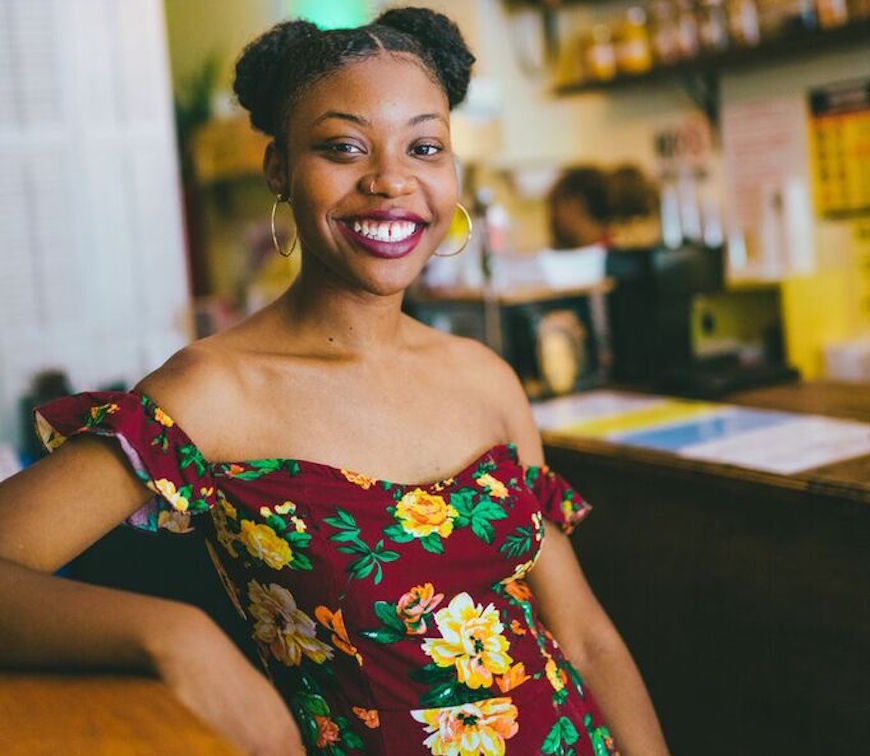
Francesca Chaney, 22, owner of Sol Sips
The healthy-food gap between people who can afford nutritious food and people who can't is real—and Francesca Chaney is doing something about it through her Brooklyn vegan café, Sol Sips. The restaurant's Saturday brunch menu is on a sliding pay scale—customers choose to pay between $7 and $15 for an entrée and drink—making what’s on the menu accessible to more people than would be the case with set prices.
When did you decide to open a vegan restaurant?
In 2016, when I was 19, with no experience in the food industry. I grew up with vegan food and come from a background in wellness and herbalism, a community where the conversation is very much centered around food and consumption as preventative medicine. I had been making my own plant-based beverages and selling them at events, and at the end of 2017, I jumped right into it with a business plan and did a soft open for three months. The feedback and support was strong enough to stay in the space permanently. We raised close to $5,000 in our first round of crowdfunding, and my family supported me with the remainder of the funds in order for us to fully open in the spring of 2018.
How do you make the sliding-scale brunch payment work financially?
The most common dollar amount people pay is $10. Occasionally people will pay more than $15 as a “pay-it-forward” for us to continue the initiative. From a business standpoint, we can never predict our profit or loss for our sliding-scale brunch. For the most part, we usually break even. We’ve also been fortunate enough to have customers who donate on a regular basis.
What's your biggest piece of advice for aspiring food entrepreneurs?
Jump in and keep swimming. It’s going to get overwhelming, and there will be growing pains, but every day gets you closer to mastery.
Check out Elle Macpherson's business advice and see how wellness CEOs start their days.
Loading More Posts...